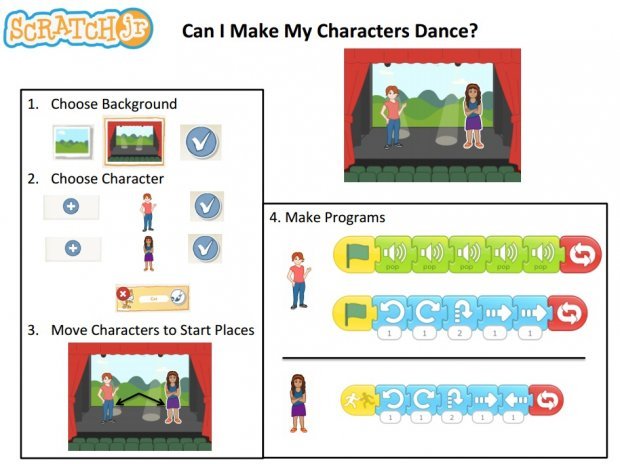Coding for schools: How to code like a five-year-old

This week thousands of children returned to school to find themselves faced with a new subject: computer programming.
England's five-year-olds are the only ones in the G20 to be taught programming, in a move the government hopes will turn the nation's children into budding tech entrepreneurs.
But children at academies may be spared the new curriculum – only local authority schools are compelled to teach the new subject.
Teachers who will be pioneering computer programming in the national curriculum for key stage 1 will be responsible for making children understand algorithms, how they are implemented on digital devices and the programs that execute them, by following precise and unambiguous instructions.
Five-year-olds will also be taught how to create and debug simple programs. Teachers are told this may take the form of writing commands for a Bee-Bot or Roamer, or by snapping on-screen program building "blocks" together, like this:

The language behind the blocks is Scratch JNR – a simple programming language that's supposed to introduce children to basic concepts of algorithms and logical reasoning.
Scratch JNR showcases four examples of how it introduces children to the wonders of programming.
Pupils are taught how make a scary-looking forest, creating multiple characters using scripts:

To get kids into using sound and motion blocks, there is the ever-rewarding prospect of making overly enthusiastic on-screen characters dance to their hearts' content.

The learning process for using the "repeat" block is making this adorable cat dribble a basketball:

To be fair, computer programming for the under-10s isn't all cat-dribbling and creepy forests. Pupils will be instructed to use technology safely and respectfully, keeping their personal information to themselves. They will be given early advice to treat others with respect – essentially "don't be a troll".
While there hasn't been enough time to assess children's attitudes to the new class, the older generation of tech enthusiasts are delighted with programme.
“Many more young people will now leave secondary education with a far stronger grounding in technology,” said Tech City UK chief executive Gerard Grech.
David Richards, chief executive of software firm WANdisco, added that Britain previously had “a national curriculum out of synch with the needs of our technology and software companies”.